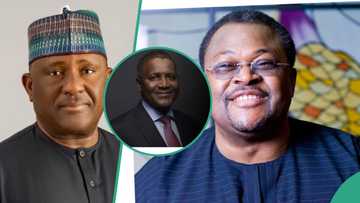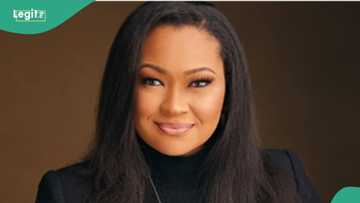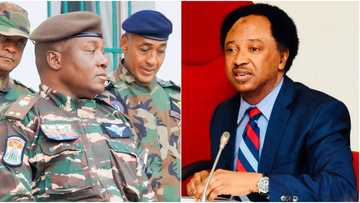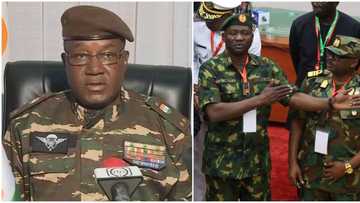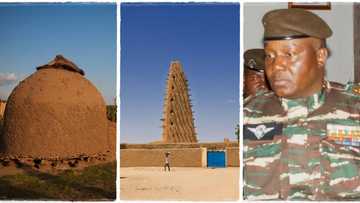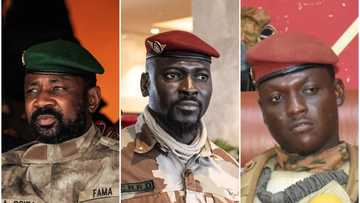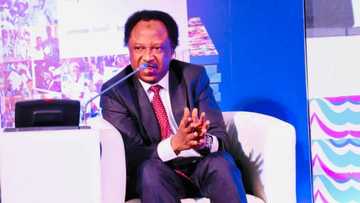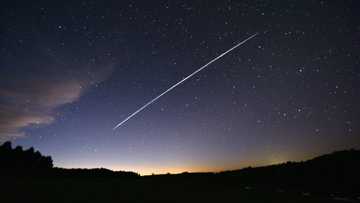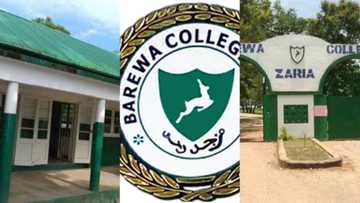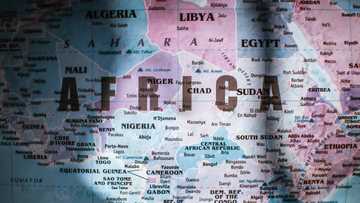Major tribes in Nigeria and their states of origin: detailed 2024 update
Nigeria is a linguistically diverse country. English is the official language, and the people speak over 500 ethnic languages. People in rural areas use English less frequently, especially those with lower education levels. Find out how many tribes are in Nigeria and the major communities that greatly influence the country's culture, economic development, and politics.
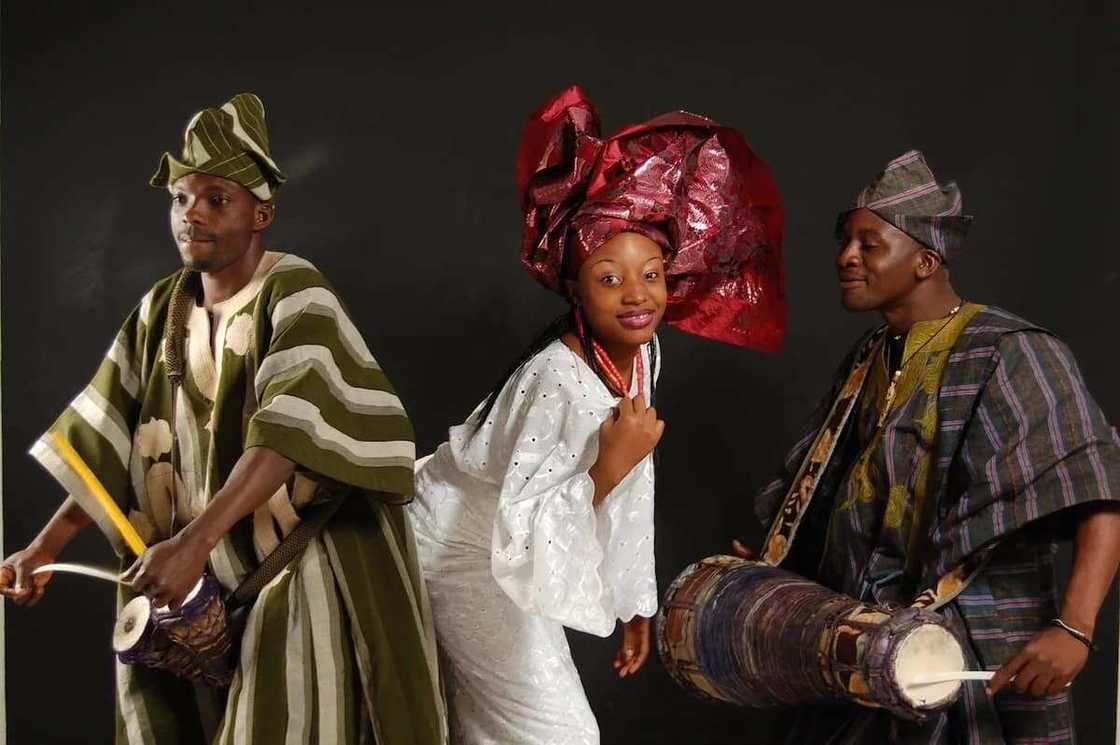
Source: UGC
TABLE OF CONTENTS
- How many tribes are in Nigeria?
- Tribes in Nigeria and their states
- How many tribes are there in Nigeria?
- What tribes are in Nigeria?
- What are the three major tribes in Nigeria?
- What are the largest tribes in Nigeria?
- What are the top 10 oldest tribes in Nigeria?
- Which tribe was the first to emerge in Nigeria?
- Which tribe has the highest population in Nigeria?
- Which is the richest tribe in Africa?
- What is the largest single tribe in Africa?
Nigeria is rich in culture and history. The county holds the largest population in Africa, with over 224.2 million people in 2024. Tribes in Nigeria prove to be unique through different traditions, expressions, and lifestyles.
How many tribes are in Nigeria?
Nigeria has 371 tribes, with Hausa and Yoruba being the two largest groups. On top of these two most populous tribes in Nigeria, hence they have the most influence on the country's political and economic developments.
The top 10 major tribes in Nigeria and their states
The diversity of tribes in Nigeria gives the country a unique identity and makes it a melting pot of different beliefs and traditions. Below are the top 10 most populated tribes in Nigeria, the states they occupy, and other details.
1. Hausa
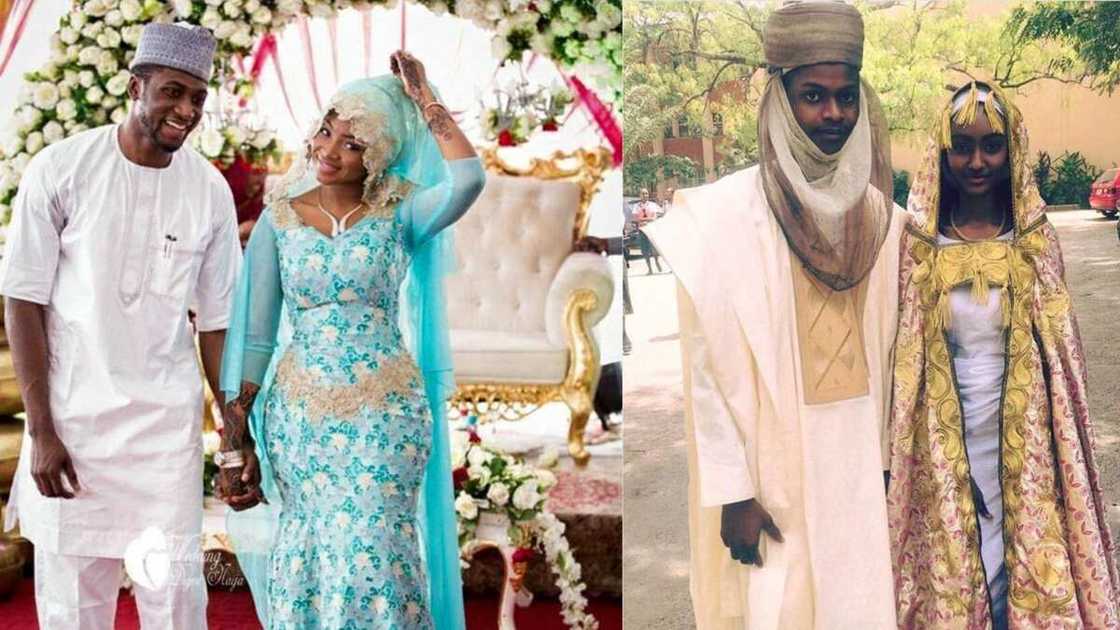
Source: UGC
Hausa is the biggest tribe in Nigeria, with a population of about 65 million people. They make up around 29% of the country's population. Hausa people have a homogenized culture and are known for raising cattle, growing crops and trading.
Islam is the main religion of the Hausa tribe, and they live in Bauchi, Jigawa, Kaduna, Kano, Katsina, Kebbi, Sokoto, Taraba, Gombe, Plateau, Yobe, and Zamfara states of Nigeria. The tribe plays a significant role in the country's politics.
Most of them live in small villages. The Hausa language is a Chadic group language of the Afro-Asiatic type. The main city of Hausa is Daura in Katsina State. They consider this town as their tribe's spiritual center.
2. Yoruba
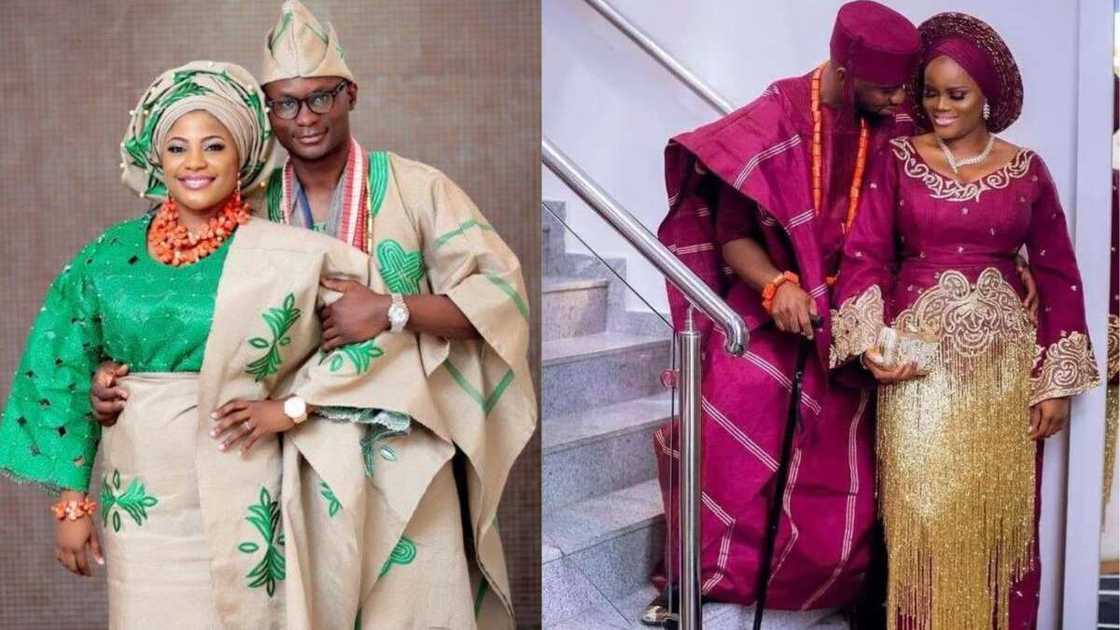
Source: UGC
Yorubas make up around 21% of Nigeria's population. They are the second most influential tribe in Nigeria. Christianity and Islam are the dominant religions among the Yorubas.
A few still practice their ancestors' religion. The tribe has a unique tonal language and preserves most of its traditions and art. Yoruba people live in the Ekiti, Kogi, Kwara, Lagos, Ogun, Ondo, Osun, and the Oyo states of Nigeria.
Yoruba is historically known as Africa's most urbanized tribe. They lived in fortress cities for centuries. Ibadan (one of the main Yoruba cities) was one of the biggest cities in Sub-Saharan Africa. Lagos is considered the main Yoruba city, and Ile Ife city is the tribe's spiritual centre.
3. Igbo
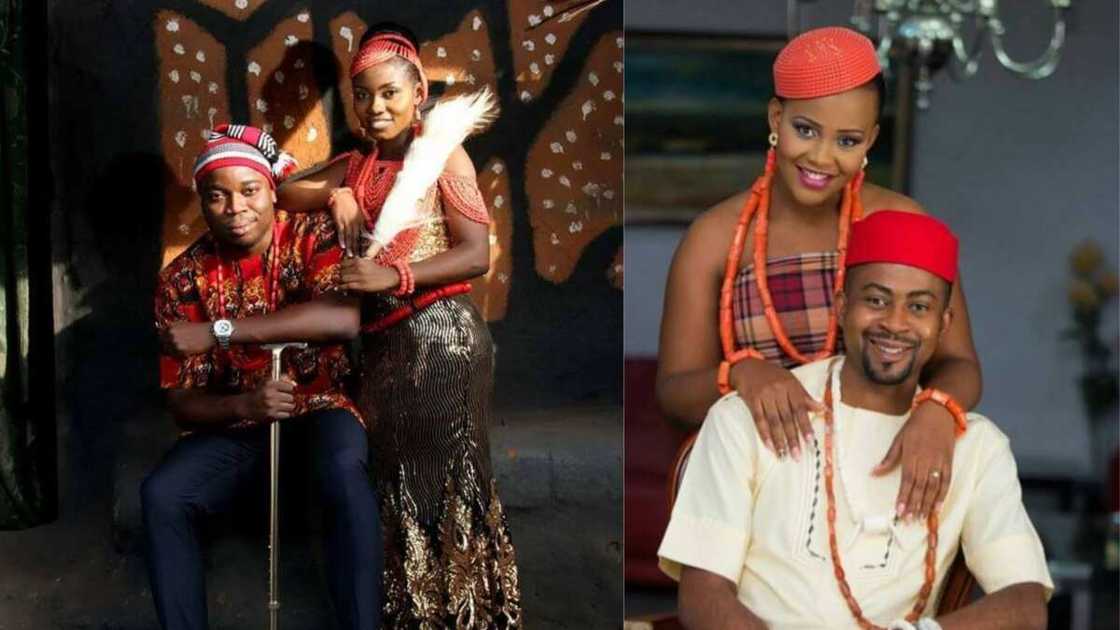
Source: UGC
Igbo is the biggest ethnic group in eastern Nigeria. They occupy Abia, Anambra, Delta, Ebonyi, Enugu, Imo, and the Rivers states. The Igbo tribe speaks several regional dialects and are farmers, craftsmen, and traders. Igbos' main religion is Christianity, and they have beautiful visual arts, dance styles, music, and attires.
The Igbo area is an integral part of oil trade in southeastern Nigeria. The 1967 war between the Nigerian government and Biafra happened in this region. The war frustrated the region's economy. Today, eastern Nigeria has a stable economy, and it attracts many business people, including billionaires.
4. Fulani (Fulbe)
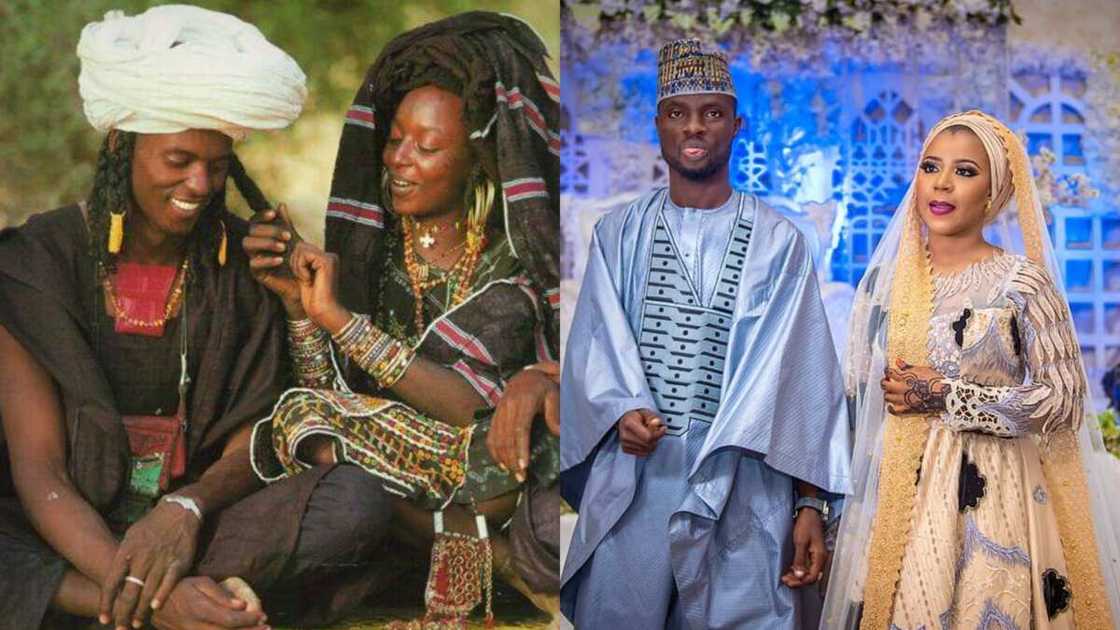
Source: UGC
Fulani and Hausa are intertwined because of intermarriages. The two tribes have a tremendous political influence in Nigeria. The Fulbe people adopted Islam as their primary religion. The main occupation of this semi-sedentary tribe is cattle rearing.
Fulani people are in northeastern Nigeria. They live in Adamawa, Bauchi, Borno, Gombe, Jigawa, Kaduna, Kano, Katsina, Kebbi, Kwara, Niger, Plateau, Sokoto, Taraba, Yobe, and Zamfara states.
5. Ibibio
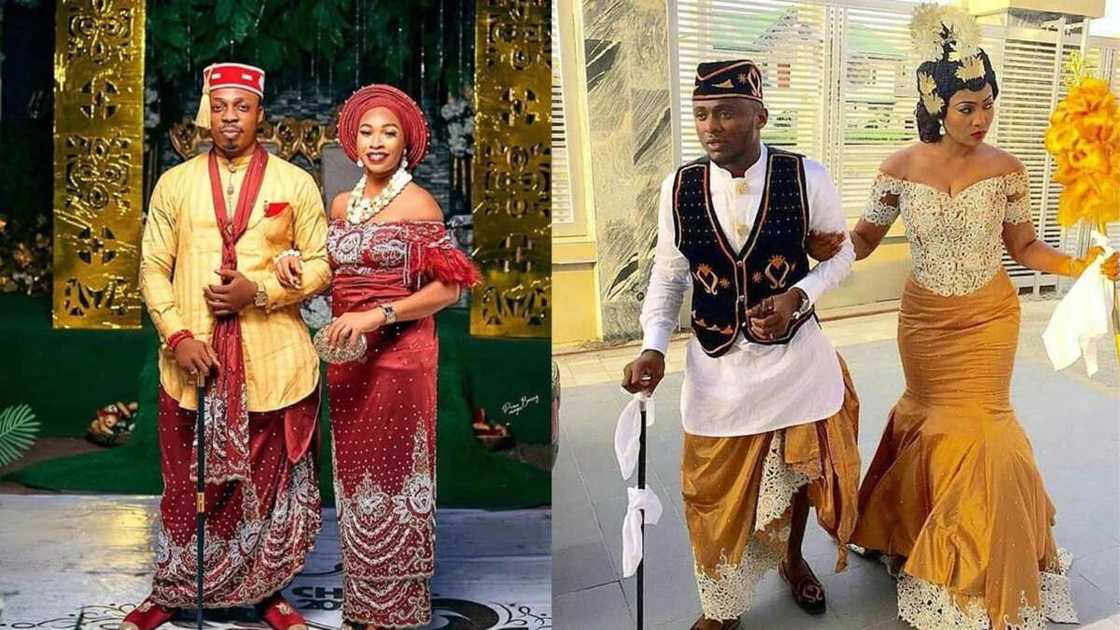
Source: UGC
Ibibio is a coastal tribe residing in southern Nigeria. They are related to the Efik people and share names and cultures with Annang, Efik, Ekid, Oron and Ibeno tribes. These communities also speak closely related dialects.
The Ibibios are in Akwa Ibom State. They share the state's government with the Anaangs, Eket and Oron but have massive control over Akwa Ibom's politics.
Most of the Ibibio people are Christians, and traditionalists worship the God of Heaven (Abasi Enyong), God of the Earth (Abasi Isong) and the Supreme Being (Abasi Ibom).
6. Kanuri
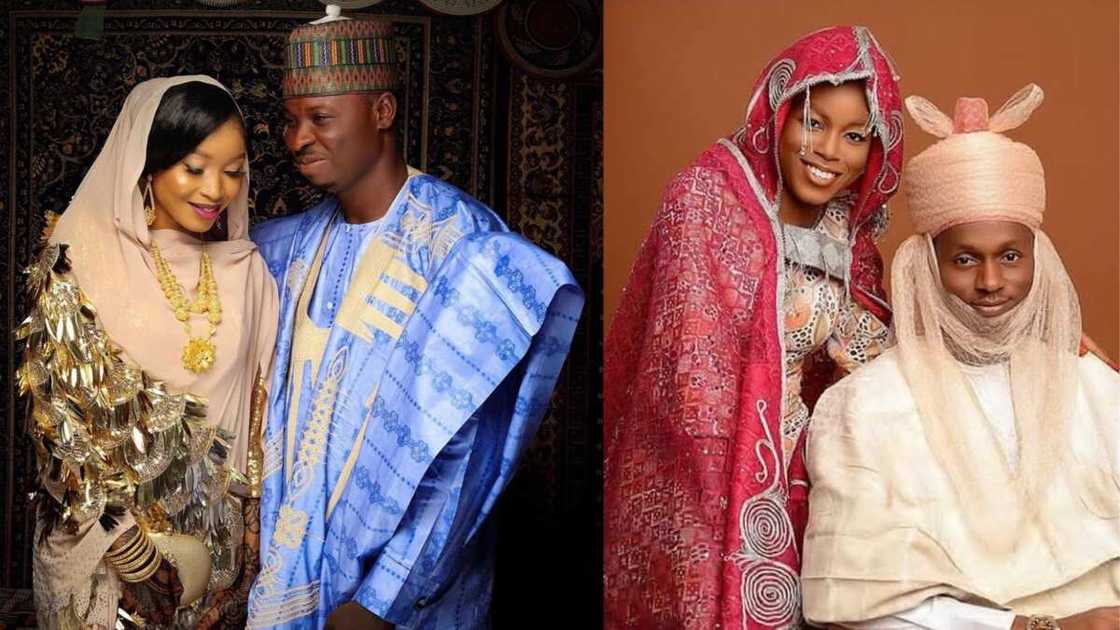
Source: UGC
The Kanuri people are in Nigeria, Chad, Sudan, Libya and Cameroon. They originate from the medieval Kanem-Bornu Empire and engage in farming, fishing, and trading. Islam is their main religion. The Kanuri tribe of Nigeria are predominantly in Adamawa, Borno, Taraba, and the Yobe states.
7. Tiv
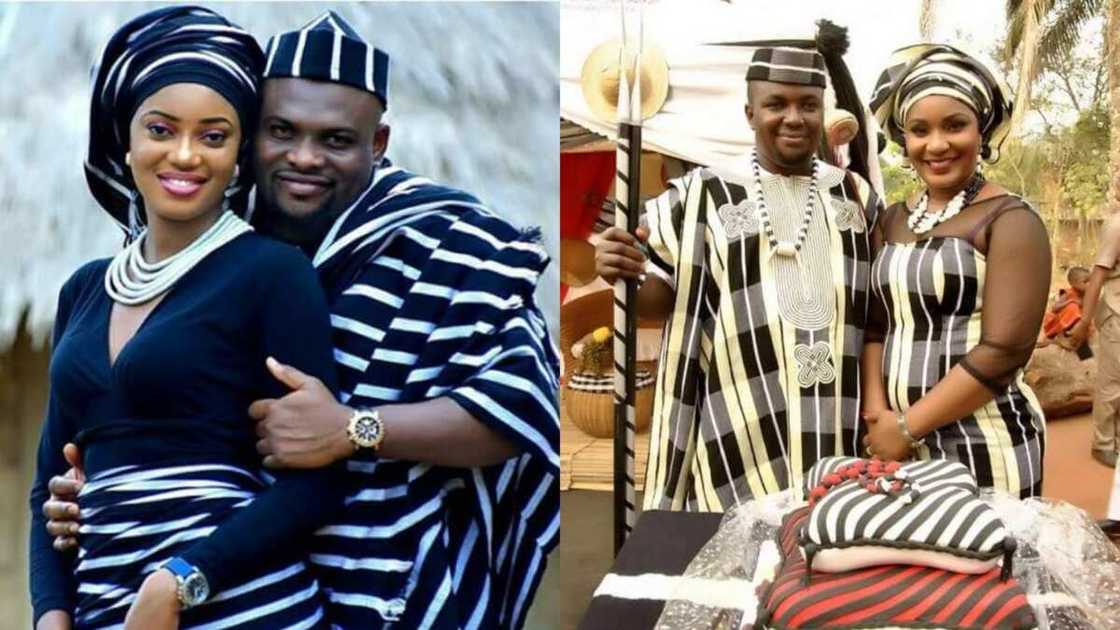
Source: UGC
The Tivoid ethnic group has over 5 million people living in Nigeria and Cameroon. Some of their traditional musical instruments are Kakaki, Ilyu, Adiguve, and Kolugh Ku Bua. The Tiv had no administrative divisions. Leadership was based on age, influence, and affluence.
Most Tiiv language speakers in Nigeria live in Benue State, Abuja FCT, Nasarawa, Niger, Plateau, and the Taraba states. Many members of the Tiv group are also in the United States and the United Kingdom.
8. Ijaw (Izon or Izon Otu)
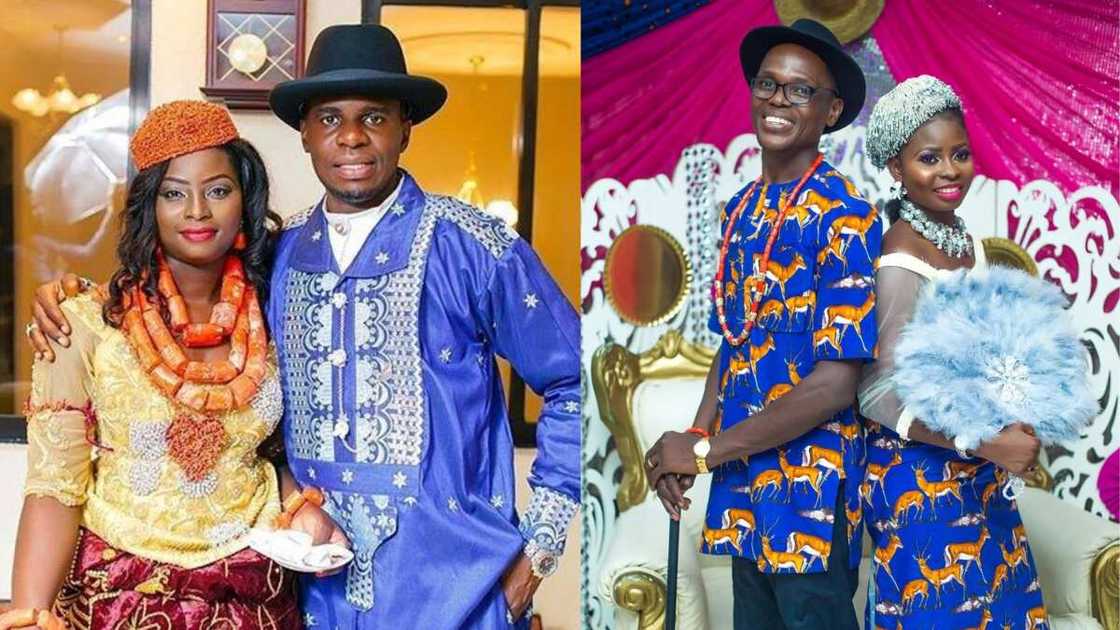
Source: UGC
The Ijaw tribe constitutes 10% of the Nigerian population. They live in the delta of the Niger River, which is extremely rich in oil and gas. The tribe is divided into 50 kinship clans, and most of them are fishermen and farmers. Additionally, the Ijaw people are primarily Christians.
9. Nupe
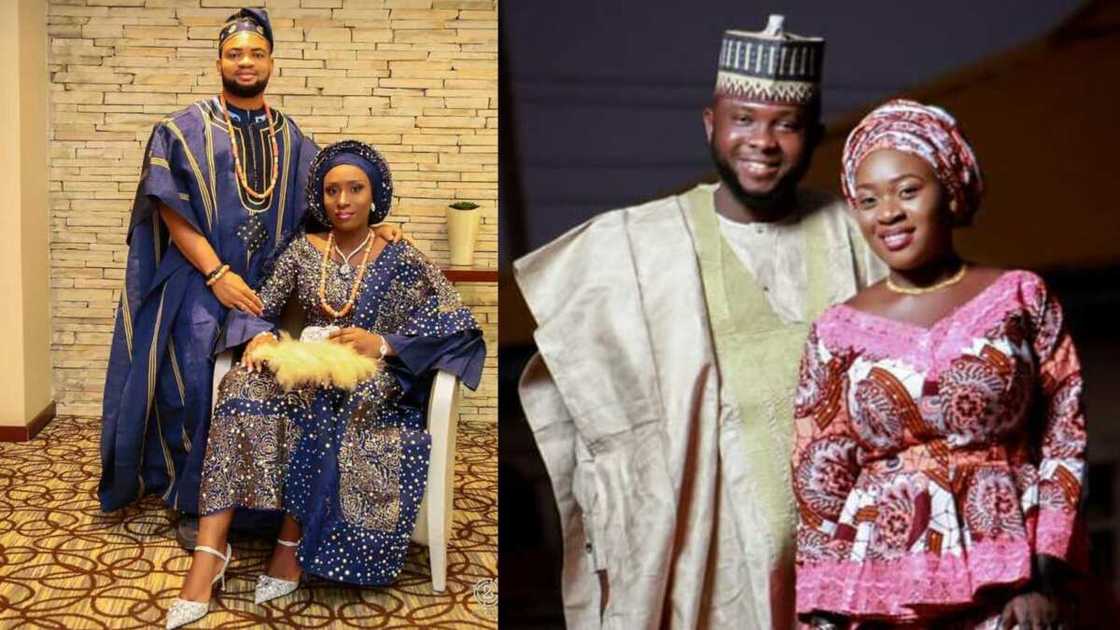
Source: UGC
Hausas call the Nupe tribe Nupawa, while Yorubas call them Tapa. They are the dominant ethnic group in Kogi, Kwara, and the Niger states. There are about 3.5 million Nupe speakers in Nigeria.
Nupe people often have tribal marks on their faces. Most of them are Muslims, and a few are Christians and traditionalists. The proximity of the Nupe tribe to the Yoruba-Oyo in the southwest and the Yoruba-Igbomina in the south led to intermarriages, trading, exchange of cultures and conflicts over the centuries.
10. Jukun (Njikum)
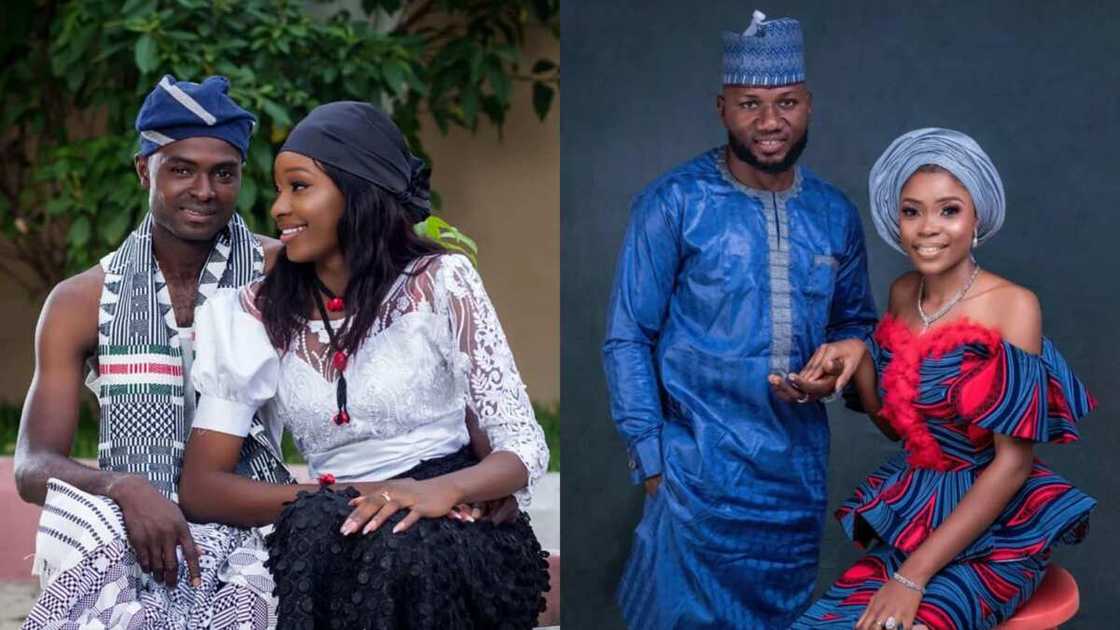
Source: UGC
Jukun people of Nigeria are in Bauchi, Benue, Plateau, and Taraba states. They are also found in various parts of northwestern Cameroon. Most of them were traditionalists until Christianity and Islam came to Africa.
The Jukun tribe is divided into two major groups; the Jukun Wapa and Jukun Wanu. Their language is divided into six dialects: Wukari, Donga, Kona, Gwana, Pindiga, Jibu, and Wase Tofa. The Kona, Gwana, and Pindiga dialects differ but are regarded as one because they are small.
Tribes in Nigeria and their states
Below is a map of major tribes in Nigeria spread among the country's states:
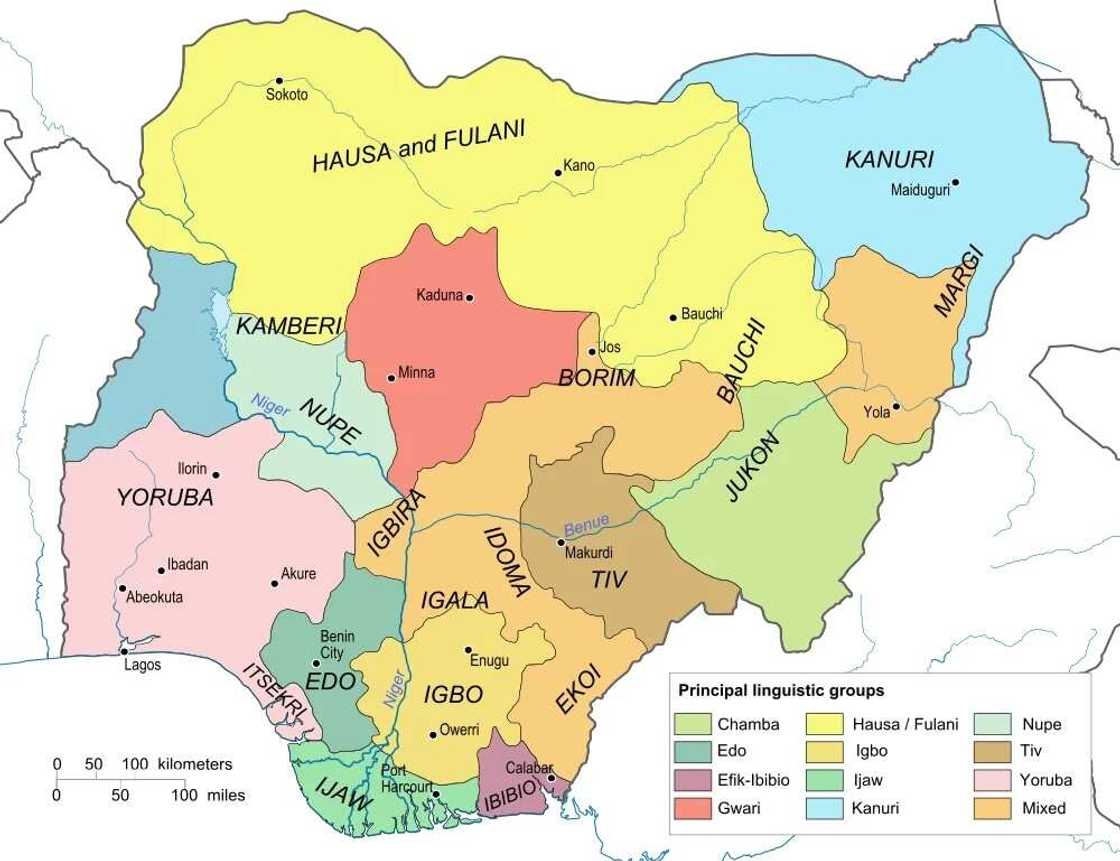
How many tribes are there in Nigeria?
Nigeria has 371 ethnic groups, speaking over 500 languages in Nigeria. English is their official language because the country was a British colony.
What tribes are in Nigeria?
Below are tables of all ethnic groups in Nigeria and the states they live in:
Names of ethnic groups - State (s) | Names of ethnic groups - State (s) |
1. Abayon
- Cross River 2. Abua (Odual) -Rivers 3. Achipa (Achipawa) - Kebbi 4. Adim - Cross River 5. Adun - Cross River 6. Affade - Yobe 7. Afizere - Plateau 8. Afo - Plateau 9. Agbo - Cross River 10. Akaju Ndem (Akajuk) - Cross River 11. Akweya Yachi - Benue 12. Alago (Arago) - Piateau 13. Amo - Plateau 14. Anaguta - Plateau 15. Anang - Akwa lbom 16. Andoni - Akwa lbom, Rivers 17. Angas - Bauchi, Jigawa, Plateau 18. Ankwei - Plateau 19. Anyima - Cross River 20. Attakar (ataka) - Kaduna 21. Auyoka (Auyokawa) - Jigawa 22. Awori - Lagos, Ogun 23. Ayu - Kaduna 24. Babur - Adamawa, Bomo, Taraba, Yobe 25. Bachama - Adamawa 26. Bachere - Cross River 27. Bada - Plateau 28. Bade - Yobe 29. Bahumono - Cross River 30. Bakulung - Taraba 31. Bali - Taraba 32. Bambora (Bambarawa) - Bauchi 33. Bambuko - Taraba 34. Banda (Bandawa) - Taraba 35. Banka (Bankalawa) - Bauchi 36. Banso (Panso) - Adamawa 37. Bara (Barawa) - Bauchi 38. Barke - Bauchi 39. Baruba (Barba) - Niger 40. Bashiri (Bashirawa) - Plateau 41. Bassa - Kaduna, Kogi, Niger, Plateau 42. Batta - Adamawa 43. Baushi - Niger 44. Baya - Adamawa 45. Bekwarra - Cross River 46. Bele (Buli, Belewa) - Bauchi 47. Betso (Bete) - Taraba 48. Bette - Cross River 49. Bilei - Adamawa 50. Bille - Adamawa 51. Bina (Binawa) - Kaduna 52. Bini - Edo 53. Birom - Plateau 54. Bobua - Taraba 55. Boki (Nki) - Cross River 56. Bkkos - Plateau 57. Boko (Bussawa, Bargawa) - Niger 58. Bole (Bolewa) - Bauchi, Yobe 59. Botlere - Adamawa 60. Boma (Bomawa, Burmano) - Bauchi 61. Bomboro - Bauchi 62. Buduma - Borno, Niger 63. Buji - Plateau 64. Buli - Bauchi 65. Bunu -Kogi 66. Bura - Adamawa 67. Burak - Bauchi 68. Burma (Burmawa) - Plateau 69. Buru - Yobe 70. Buta (Butawa) - Bauchi 71. Bwall - Plateau 72. Bwatiye - Adamawa 73. Bwazza - Adamawa 74. Challa - Plateau 75. Chama (Chamawa Fitilai) - Bauchi 76. Chamba - Taraba 77. Chamo - Bauchi 78. Chibok (Chibbak) - Yobe 79. Chinine - Borno 80. Chip - Plateau 81. Chokobo - Plateau 82. Chukkol - Taraba 83. Daba - Adamawa 84. Dadiya - Bauchi 85. Daka - Adamawa 86. Dakarkari - Niger, Kebbi 87. Danda (Dandawa) - Kebbi 88. Dangsa - Taraba 89. Daza (Dere, Derewa) - Bauchi 90. Degema - Rivers 91. Deno (Denawa) - Bauchi 92. Dghwede - Bomo 93. Diba - Taraba | 94. Doemak (Dumuk) - Plateau 95. Ouguri - Bauchi 96. Duka (Dukawa) - Kebbi 97. Duma (Dumawa) - Bauchi 98. Ebana (Ebani) - Rivers 99. Ebirra (lgbirra) - Edo, Kogi, Ondo 100. Ebu - Edo, Kogi 101. Efik - Cross River 102. Egbema - Rivers 103. Egede (lgedde) - Benue 104. Eggon - Plateau 105. Egun (Gu) - Lagos,Ogun 106. Ejagham - Cross River 107. Ekajuk - Cross River 108. Eket - Akwa Ibom 109. Ekoi - Cross River 110. Engenni (Ngene) -Rivers 111. Epie -Rivers 112. Esan (Ishan) - Edo 113. Etche - Rivers 114. Etolu (Etilo) - Benue 115. Etsako - Edo 116. Etung - Cross River 117. Etuno - Edo 118. Palli - Adamawa 119. Pulani (Pulbe) - Bauchi, Borno, Jigawa, Kaduna, Kano, Katsina, Kebbi , Niger, Sokoto, Taraba, Yobe 120. Fyam (Fyem) - Plateau 121. Fyer (Fer) - Plateau 122. Ga’anda - Adamawa 123. Gade - Niger 124. Galambi - Bauchi 125. Gamergu Mulgwa -Borno 126. Qanawuri - Plateau 127. Gavako - Borno 128. Gbedde - Kogi 129. Gengle - Taraba 130. Geji - Bauchi 131. Gera (Gere, Gerawa) -Bauchi 132. Geruma (Gerumawa) -Plateau 133. Geruma (Gerumawa) -Bauchi 134. Gingwak -Bauchi 135. Gira -Adamawa 136. Gizigz -Adamawa 137. Goernai -Plateau 138. Gokana (Kana) -Rivers 139. Gombi -Adamawa 140. Gornun (Gmun) -Taraba 141. Gonia -Taraba 142. Gubi (Gubawa) -Bauchi 143. Gude - Adamawa 144. Gudu - Adamawa 145. Gure - Kaduna 146. Gurmana - Niger 147. Gururntum - Bauchi 148. Gusu - Plateau 149. Gwa (Gurawa) - Adamawa 150. Gwamba - Adamawa 151. Gwandara - Kaduna, Niger, Plateau 152. Gwari (Gbari) -Kaduna, Niger, Abuja, Plateau 153. Gwom - Taraba 154. Gwoza (Waha) -Borno 155. Gyem -Bauchi 156. Hausa - Bauchi, Borno, Jigawa, Kaduna, Kano, Kastina, Kebbi, Niger, Taraba, Sokoto, Zamfara 157. Higi (Hig) - Borno, Adamawa 158. Holma - Adamawa 159. Hona - Adamawa 160. Ibeno - Akwa lbom 161. Ibibio - Akwa lbom 162. Ichen - Adamawa 163. Idoma - Benue, Taraba 164. Igalla - Kogi 165. lgbo -Abia, Anambra, Benue, Delta, Ebonyi, Enugu, Imo, Rivers 166. ljumu - Kogi 167. Ikorn - Cross River 168. Irigwe - Plateau 169. Isoko - Delta 170. lsekiri (Itsekiri) - Delta 171. lyala (lyalla) - Cross River 172 . lzondjo -Bayelsa, Delta, Ondo, Rivers 173. Jaba -Kaduna 174. Jahuna (Jahunawa) -Taraba 175. Jaku -Bauchi 176. Jara (Jaar Jarawa Jarawa-Dutse) - Bauchi 177. Jere (Jare, Jera, Jera, Jerawa) - Bauchi, Plateau 178. Jero - Taraba 179. Jibu - Adamawa 180. Jidda Abu - Plateau 181. Jimbin (Jimbinawa) - Bauchi 182. Jirai - Adamawa |
Names of ethnic groups - State (s) | Names of ethnic groups - State (s) |
183. Jonjo (Jenjo) - Taraba 184. Jukun - Bauchi, Benue, Taraba, Plateau 185. Kaba (Kabawa) - Taraba 186. Kadara - Taraba 187. Kafanchan - Kaduna 188. Kagoro - Kaduna 189. Kaje (Kache) -Kaduna 190. Kajuru (Kajurawa) - Kaduna 191. Kaka - Adamawa 192. Kamaku (Karnukawa) - Kaduna, Kebbi, Niger 193. Kambari - Kebbi, Niger 194. Kambu - Adamawa 195. Kamo - Bauchi 196. Kanakuru (Dera) - Adamawa, Borno 197. Kanembu - Borno 198. Kanikon -Kaduna 199. Kantana -Plateau 200. Kanuri - Kaduna, Adamawa, Borno, Kano, Niger, Jigawa, Plateau, Taraba, Yobe 201. Karekare (Karaikarai) - Bauchi, Yobe 202. Karimjo - Taraba 203. Kariya - Bauchi 204. Katab (Kataf) - Kaduna 205. Kenern (Koenoem) - Plateau 206. Kenton - Taraba 207. Kiballo (Kiwollo) - Kaduna 208. Kilba - Adamawa 209. Kirfi (Kirfawa) - Bauchi 210. Koma - Taraba 211. Kona - Taraba 212. Koro (Kwaro) - Kaduna, Niger 213. Kubi (Kubawa) - Bauchi 214. Kudachano (Kudawa) - Bauchi 215. Kugama - Taraba 216. Kulere (Kaler) - Plateau 217. Kunini - Taraba 218. Kurama - Jigawa, Kaduna, Niger, Plateau 219. Kurdul - Adamawa 220. Kushi - Bauchi 221. Kuteb - Taraba 222. Kutin - Taraba 223. Kwalla - Plateau 224. Kwami (Kwom) - Bauchi 225. Kwanchi - Taraba 226. Kwanka (Kwankwa) - Bauchi, Plateau 227. Kwaro - Plateau 228. Kwato - Plateau 229. Kyenga (Kengawa) - Sokoto 230. Laaru (Larawa) - Niger 231. Lakka - Adamawa 232. Lala - Adamawa 233. Lama - Taraba 234. Lamja - Taraba 235. Lau - Taraba 236. Ubbo - Adamawa 237. Limono - Bauchi, Plateau 238. Lopa (Lupa, Lopawa) - Niger 239. Longuda (Lunguda) - Adamawa, Bauchi 240. Mabo - Plateau 241. Mada - Kaduna, Plateau 242. Mama - Plateau 243. Mambilla - Adamawa 244. Manchok - Kaduna 245. Mandara (Wandala) - Borno 246. Manga (Mangawa) - Yobe 247. Margi (Marghi) - Adamawa, Borno 248. Matakarn - Adamawa 249. Mbembe - Cross River, Enugu 250. Mbol - Adamawa 251. Mbube - Cross River 252. Mbula - Adamawa 253. Mbum - Taraba 254. Memyang (Meryan) - Plateau 255. Miango - Plateau 256. Miligili (Migili) - Plateau 257. Miya (Miyawa) - Bauchi 258. Mobber - Borno 259. Montol - Plateau 260. Moruwa (Moro’a, Morwa) - Kaduna 261. Muchaila - Adamawa 262. Mumuye - Taraba 263. Mundang - Adamawa 264. Munga (Mupang) - Plateau 265. Mushere - Plateau 266. Mwahavul (Mwaghavul) - Plateau 267. Ndoro - Taraba 268. Ngamo - Bauchi, Yobe 269. Ngizim - Yobe 270. Ngweshe (Ndhang.Ngoshe-Ndhang) - Adamawa, Borno 271. Ningi (Ningawa) -Bauchi 272. Ninzam (Ninzo) -Kaduna, Plateau 273. Njayi -Adamawa 274. Nkim -Cross River 275. Nkum -Cross River | 276. Nokere (Nakere) -Plateau 277. Nunku -Kaduna, Plateau 278. Nupe -Niger 279. Nyandang -Taraba 280. Ododop Cross River 281. Ogori -Kwara 282. Okobo (Okkobor) -Akwa lbom 283. Okpamheri -Edo 284. Olulumo -Cross River 285. Oron -Akwa lbom 286. Owan -Edo 287. Owe -Kwara 288. Oworo -Kwara 289. Pa’a (Pa’awa Afawa) -Bauchi 290. Pai -Plateau 291. Panyam -Taraba 292. Pero -Bauchi 293. Pire -Adamawa 294. Pkanzom -Taraba 295. Poll -Taraba 296. Polchi Habe -Bauchi 297. Pongo (Pongu) -Niger 298. Potopo -Taraba 299. Pyapun (Piapung) -Plateau 300. Qua -Cross River 301. Rebina (Rebinawa) -Bauchi 302. Reshe -Kebbi, Niger 303. Rindire (Rendre) -Plateau 304. Rishuwa -Kaduna 305. Ron -Plateau 306. Rubu -Niger 307. Rukuba -Plateau 308. Rumada -Kaduna 309. Rumaya -Kaduna 310. Sakbe -Taraba 311. Sanga -Bauchi 312. Sate -Taraba 313. Saya (Sayawa Za’ar) -Bauchi 314. Segidi (Sigidawa) -Bauchi 315. Shanga (Shangawa) -Sokoto 316. Shangawa (Shangau) -Plateau 317. Shan-Shan -Plateau 318. Shira (Shirawa) -Kano 319. Shomo -Taraba 320. Shuwa -Adamawa, Borno 321. Sikdi -Plateau 322. Siri (Sirawa) -Bauchi 323. Srubu (Surubu) -Kaduna 324. Sukur -Adamawa 325. Sura -Plateau 326. Tangale -Bauchi 327. Tarok -Plateau, Taraba 328. Teme -Adamawa 329. Tera (Terawa) -Bauchi, Bomo 330. Teshena (Teshenawa) -Kano 331. Tigon -Adamawa 332. Tikar -Taraba 333. Tiv -Benue, Plateau, Taraba and Nasarawa 334. Tula -Bauchi 335. Tur -Adamawa 336. Ufia -Benue 337. Ukelle -Cross River 338. Ukwani (Kwale) -Delta 339. Uncinda -Kaduna, Kebbi, Niger, Sokoto 340. Uneme (Ineme) -Edo 341. Ura (Ula) -Niger 342. Urhobo -Delta 343. Utonkong -Benue 344. Uyanga -Cross River 345. Vemgo -Adamawa 346. Verre -Adamawa 347. Vommi -Taraba 348. Wagga -Adamawa 349. Waja -Bauchi 350. Waka -Taraba 351. Warja (Warja) -Jigawa 352. Warji -Bauchi 353. Wula -Adamawa 354. Wurbo -Adamawa 355. Wurkun -Taraba 356. Yache -Cross River 357. Yagba -Kwara 358. Yakurr (Yako) -Cross River 359. Yalla -Benue 360. Yandang -Taraba 361. Yergan (Yergum) -Plateau 362. Yoruba - Kwara, Lagos, Ogun, Ondo, Oyo, Osun, Ekiti, Kogi) 363. Yott -Taraba 364. Yumu -Niger 365. Yungur -Adamawa 366. Yuom -Plateau 367. Zabara -Niger 368. Zaranda -Bauchi 369. Zarma (Zarmawa) -Kebbi 370. Zayam (Zeam) -Bauchi 371. Zul (Zulawa) –Bauchi |
What are the three major tribes in Nigeria?
Yoruba, Hausa and Igbo and the three largest tribes in Nigeria. These tribes make up nearly 70% of the country's population.
What are the largest tribes in Nigeria?
Major tribes in Nigeria and their percentage in the country's population are:
- Hausa-Fulani - 29%
- Yoruba - 21%
- Igbo (Ibo) - 18%
- Ijaw - 10%
- Kanuri - 4%
- Ibibio - 3.5%
- Tiv - 2.5%
What are the top 10 oldest tribes in Nigeria?
The ten ancient tribes existed before the amalgamation of Nigeria in 1914. Moreover, each has their own culture, religious practices, and form of government. These tribes are:
- Ijaw
- Ebira
- Ibibio-Efik
- Igbo (Ibo)
- Hausa-Fulani
- Kanuri
- Yoruba
- Igala
- Benin
- Gbagyi
Which tribe was the first to emerge in Nigeria?
The Ijaw is the oldest tribe in Nigeria because studies show the Ijo language existed 5,000 years before language groups neighboring them. These earliest inhabitants of Nigeria can be traced to 13,000 BC before modern Nigeria existed in the 1500s. The Ijaw ancestors were the ancient ORU or (H)ORU people. These nomadic people migrated from Lake Chad and the Sudanic Nile Valley to the southwestern delta of the Niger River.
Which tribe has the highest population in Nigeria?
Hausa is the largest tribe in Nigeria, making up approximately 29% of the country's population.
Which is the richest tribe in Africa?
Yoruba is the wealthiest ethnic group in the south of the Sahara Desert. They mainly inhabit part of Nigeria and can also be found in Benin and Togo. Yorubas are rich because they value education and have the highest number of professionals on the continent. Most are into politics, business, and entrepreneurship.
What is the largest single tribe in Africa?
Hausa is the largest single tribe in Africa, with about 78 million people. They are primarily in northwestern Nigeria and southern Niger but can also be found in Cameroon, Togo, Chad, Benin, Burkina Faso, and Ghana.
Knowing how many tribes are in Nigeria and their states help one understand the nation better. The major tribes in Nigeria have a massive say in the country's politics because they have the most population and voters. This does not mean that there is no democracy in the country. The federal government of Nigeria upholds equality for all.
Legit.ng also shared an insightful article about geopolitical zones in Nigeria and their states. Nigeria is divided into six regions called geopolitical zones.
General Sani Abacha's regime created these administrative regions to determine the distribution of economic, educational, and political resources among the people.
Source: Legit.ng

Peris Walubengo (Lifestyle writer) Peris Walubengo has vast experience in search engine optimization through digital content generation, research, editing, and proofreading. She joined Legit.ng in April 2022 and completed the AFP course on Digital Investigation Techniques. You can email her at perisrodah254@gmail.com.

Adrianna Simwa (Lifestyle writer) Adrianna Simwa is a content writer at Legit.ng where she has worked since mid-2022. She has written for many periodicals on a variety of subjects, including news, celebrities, and lifestyle, for more than three years. She has worked for The Hoth, The Standard Group and Triple P Media. Adrianna graduated from Nairobi University with a Bachelor of Fine Arts (BFA) in 2020. In 2023, Simwa finished the AFP course on Digital Investigation Techniques. You can reach her through her email: adriannasimwa@gmail.com

